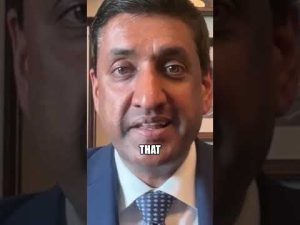**Supreme Court’s Decision Raises Eyebrows and Concerns: A Closer Look at Presidential Immunity**
In a twist that sounds straight out of a political thriller, the Supreme Court recently ruled that the president has absolute immunity to commit crimes in certain core areas of responsibility, particularly involving the Department of Justice (DOJ). This revelation has left many citizens scratching their heads and wondering what this really means for the upcoming administration. Critics have expressed serious worries about this decision, fearing it has effectively armed future presidents with a “loaded weapon” that could be used to sidestep accountability.
This ruling arose during the legal discussions surrounding the case known as Trump versus United States. Advocates for the decision argue that it is a necessary protection for the president, ensuring the highest office in the land can execute its duties without the constant fear of legal repercussions. However, others believe this immunity opens the floodgates for possible abuses of power. With the complexity of the law and the potential for exploitation, the question now is: how will the new administration approach this precarious tightrope walk between power and accountability?
As the attorney general nominee faced questions regarding this ruling, a palpable tension filled the room. The grilling from lawmakers was intense, especially when inquiries touched on whether the incoming attorney general would investigate figures like Jack Smith, the special prosecutor appointed to investigate the former president. Instead of directly engaging with the inquiries, the nominee appeared to tread cautiously, emphasizing the necessity of evidence and specifics. Something about that response felt like watching a dance-off where neither partner wants to commit first; it was full of rhythm but lacking in decisive moves.
When pressed about the possibility of investigating figures like Liz Cheney or even responding to the president’s harsh words about Smith, the nominee dodged the questions like a seasoned politician, asserting that such decisions would need careful consideration of the facts. While it is commendable to want to gather all the information before making decisions, one can’t help but wonder how independent this nomination truly is if the president’s opinions could sway the outcome of investigations. The implication is clear: the incoming attorney general must have the backbone to say “no” when necessary.
The discussion also shifted to whether the upcoming attorney general would be brave enough to tell hard truths to the president, including the fact that Donald Trump lost the 2020 election. The nominee’s ambiguous responses sparked further concerns among some senators about the level of independence that might be exercised once in the role. Can an attorney general stand firm in the face of presidential pressure, or are they doomed to dance around potentially awkward conversations? It seems the country’s confidence once again hangs in the balance.
In a world where accountability is crucial, the Supreme Court’s decision could very well serve as a backdrop for an uneasy political landscape. The public remains wary as lawsuits and debates unfold, with many asking: “Will the next attorney general be a defender of justice or an enabler of potential wrongs?” As the Senate confirmation hearings roll on, citizens will be keeping a close eye on whether the answers offered reflect the strength and independence required for such a vital role, or if they merely serve to placate powerful interests. The stakes have never been higher, and the wait for clarity continues!







